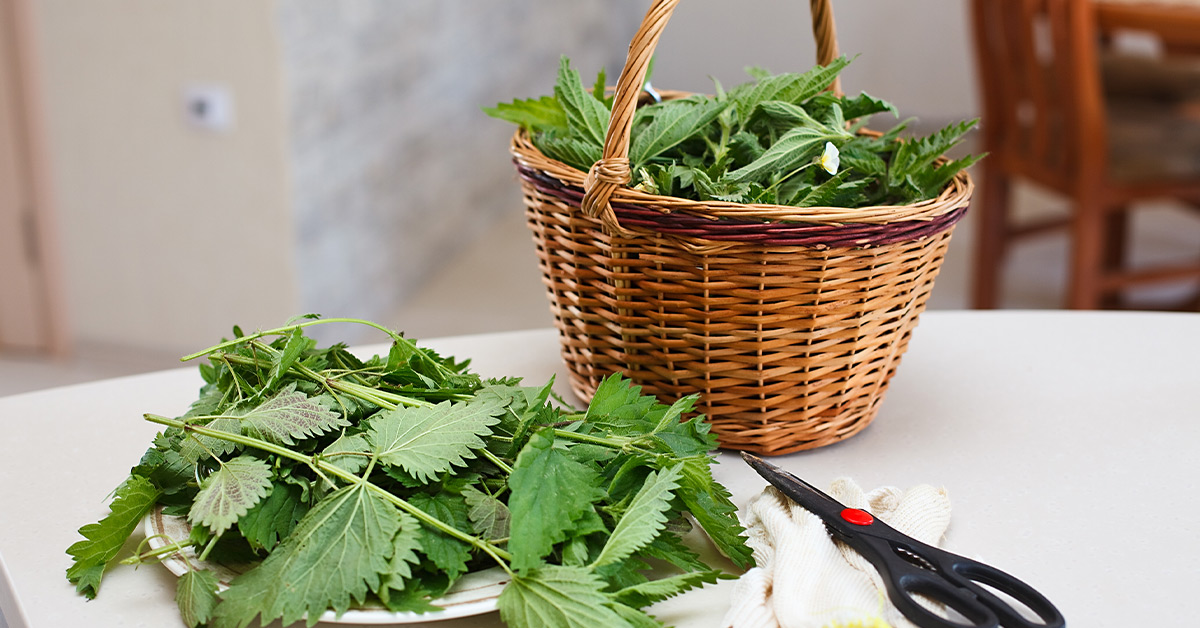WHAT HAPPENS TO OUR BODY WHEN WE CONSUME PROTEIN
The health benefits of it!

Nettle (Urtica dioica) belongs to the Urticaceae family and is a herbaceous, wild plant with over 500 species worldwide.
Its most distinctive feature is the sensation it causes upon contact with bare skin, due to the toxins contained in the hairs covering the plant, such as acetylcholine, formic acid, and histamines.
These toxins are neutralized when the plant is exposed to boiling temperatures or heat. Nettle has been used in medicine since ancient times, primarily as a diuretic, laxative, and hemostatic.
Nettle Composition:
Nettle is rich in vitamins (C, A, K, E), riboflavin, folic acid, and trace minerals such as silicon, iron, magnesium, manganese, phosphorus, selenium, copper, calcium, and potassium. Additionally, it contains antioxidants, making it a nutritious addition to a balanced diet.
?Properties and Benefits for the Human Body:
As we’ve seen above, nettle is rich in nutrients that benefit the human body. Here's a summary of its therapeutic properties:
Helps maintain normal blood glucose levels by stimulating the pancreas to secrete insulin.
Contains antioxidants that help eliminate free radicals from the body.
The combination of plant-based iron and vitamin C helps with the total absorption of iron, making it beneficial for cases of iron-deficiency anemia.
Due to its hemostatic properties, nettle seeds are useful for treating bleeding issues, such as during menstruation and the postpartum period.
The histamine in nettle has strong anti-inflammatory effects and consuming it in any form can relieve symptoms of existing inflammation and seasonal allergies.
Nettle tea is a potent diuretic, which can be helpful in cases of urinary tract infections and kidney stones.
It has beneficial effects on blood circulation and contributes to the reduction of uric acid.
Nettle’s potential use is also being studied in the field of dermatology, where it appears to have positive effects on conditions like eczema and other skin disorders.
Clinical studies have shown that nettle can reduce symptoms in men suffering from benign prostatic hyperplasia (BPH).
Consuming nettle regularly can help regulate blood pressure.
Its ability to reduce high cholesterol is still under research, but early results indicate a decrease in cholesterol levels in mice with hypercholesterolemia.
How to Consume Nettle:
As mentioned earlier, the toxic effect of nettle is neutralized when it comes into contact with boiling water or is cooked. Therefore, it can be used in cooking in dishes such as pies, soups, boiled greens, and in the form of herbal tea.
It is important to ensure that the plant is clean for consumption, as nettle can become contaminated, especially in areas where it thrives (as a weed).
❗Precautions and Side Effects:
Nettle should not be consumed by people with low blood pressure, kidney disease, heart disease, or pregnant women.
Additionally, there have been reports of adverse interactions with diuretics, antidiabetic medications, antihypertensive drugs, CNS depressants, sedatives, and anticoagulants.
